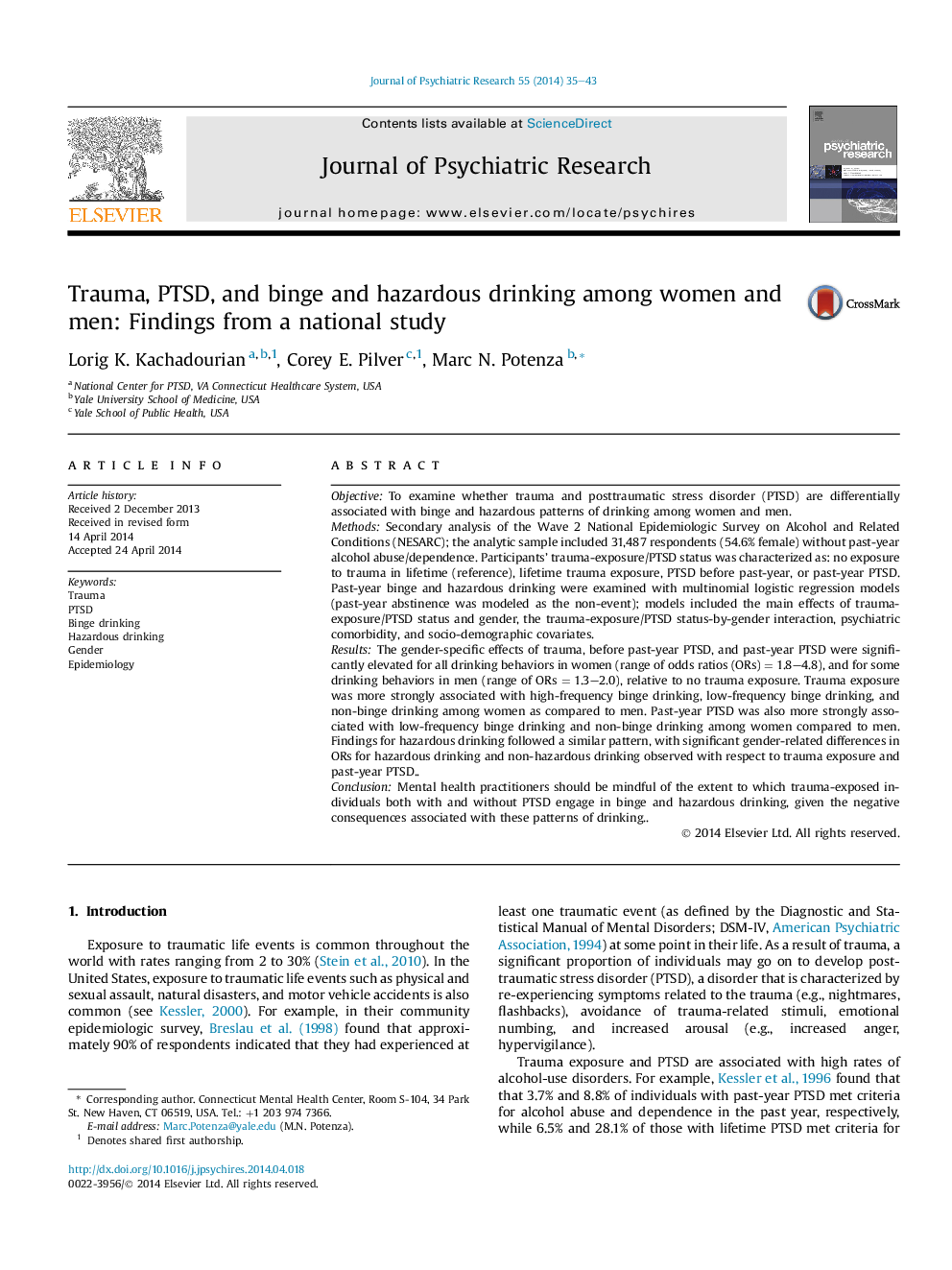| Article ID | Journal | Published Year | Pages | File Type |
|---|---|---|---|---|
| 327567 | Journal of Psychiatric Research | 2014 | 9 Pages |
ObjectiveTo examine whether trauma and posttraumatic stress disorder (PTSD) are differentially associated with binge and hazardous patterns of drinking among women and men.MethodsSecondary analysis of the Wave 2 National Epidemiologic Survey on Alcohol and Related Conditions (NESARC); the analytic sample included 31,487 respondents (54.6% female) without past-year alcohol abuse/dependence. Participants' trauma-exposure/PTSD status was characterized as: no exposure to trauma in lifetime (reference), lifetime trauma exposure, PTSD before past-year, or past-year PTSD. Past-year binge and hazardous drinking were examined with multinomial logistic regression models (past-year abstinence was modeled as the non-event); models included the main effects of trauma-exposure/PTSD status and gender, the trauma-exposure/PTSD status-by-gender interaction, psychiatric comorbidity, and socio-demographic covariates.ResultsThe gender-specific effects of trauma, before past-year PTSD, and past-year PTSD were significantly elevated for all drinking behaviors in women (range of odds ratios (ORs) = 1.8–4.8), and for some drinking behaviors in men (range of ORs = 1.3–2.0), relative to no trauma exposure. Trauma exposure was more strongly associated with high-frequency binge drinking, low-frequency binge drinking, and non-binge drinking among women as compared to men. Past-year PTSD was also more strongly associated with low-frequency binge drinking and non-binge drinking among women compared to men. Findings for hazardous drinking followed a similar pattern, with significant gender-related differences in ORs for hazardous drinking and non-hazardous drinking observed with respect to trauma exposure and past-year PTSD..ConclusionMental health practitioners should be mindful of the extent to which trauma-exposed individuals both with and without PTSD engage in binge and hazardous drinking, given the negative consequences associated with these patterns of drinking..
